


V. AllWISE Data Processing
V.3. Multiframe Pipeline Updates
c. Astrometry
V.3.c.i. Updated Band-to-Band Offsets and Distortion Maps
During single-frame pipeline processing the SFPRex processor was run twice on each frame. The first time it did a stripped-down 3-parameter fit (2 translation + rotation for W1) which was used for all downstream pipeline processing. The rest of the up to 17 parameters needed were supplied from apriori knowledge obtained during IOC. A second run (referred to as SFPRex QA) was also made for each frame. That run fit simultaneously for all 20 parameters and the results were archived for future trend analysis. This procedure was adopted to guard against spurious results in the longer wavelength bands, particularly W4 (due to low source counts in a given frame) from corrupting downstream pipeline processing. Trend analysis of smoothed SFPRex QA results showed some variations with time over the length of the mission which were somewhat different for ascending and descending frames. Time windows, on average around 3 days wide with some adjustments near discontinuities, were selected to provide inputs from a large set of frames for each fit.
Time histories of these fits (presented in figures 1-17) were used in AllWISE to expand the 3-parameter W1 MFPRex iteration results out to the 20 parameters needed for the four bands. In each case separate fits of the SFPRex QA results were done for ascending (red) and descending (blue) frames. Each plot is divided into the three mission phases (4-band cryo, 3-band cryo & post cryo) separated by vertical black lines. W3 data is shown for the first two mission phases, but is irrelevant for 3-band cryo, since the decision was made not to include that data in AllWISE. For the band-to-band difference plots, the horizontal heavy black dashed line in each case indicates the constant value determined during IOC and used for for previous processing. For figures 1-9 differences are w.r.t. the W1 band-frame. The scale correction plots (figures 10-17) present fractional changes from the constant X & Y scale factors determined during IOC and used for previous processing.
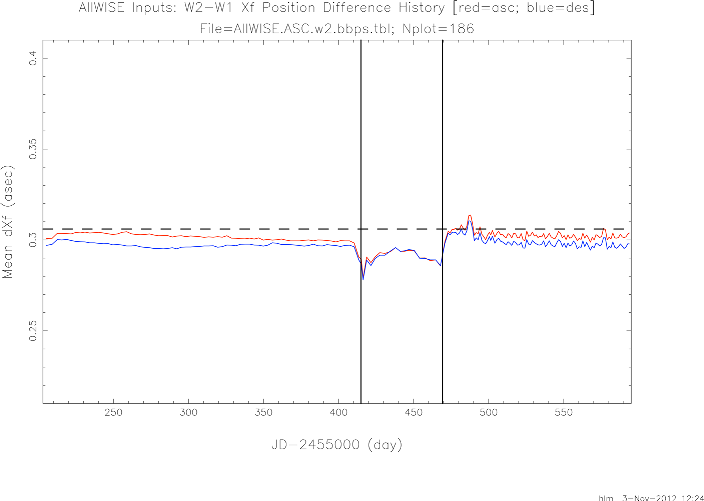 |
| Figure 1- W2-W1 Difference History |
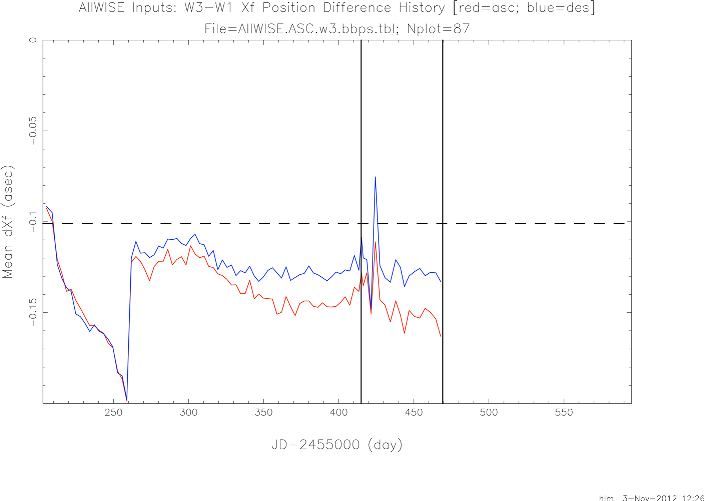 |
| Figure 2 - W3-W1 Xf Difference History |
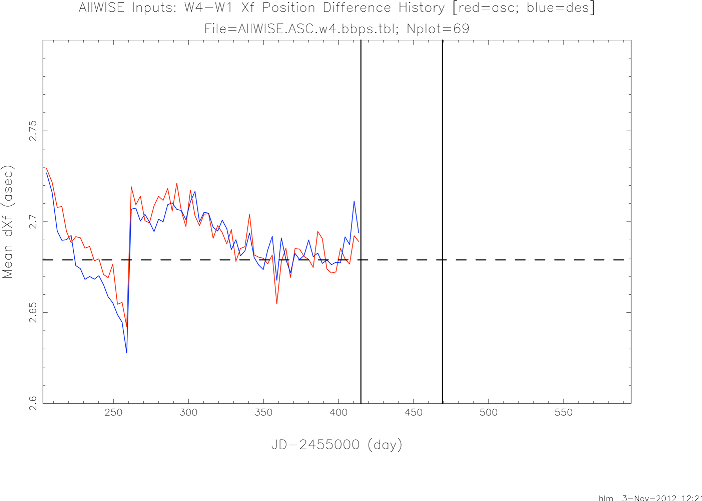 |
| Figure 3 -W4-W1 Xf Difference History |
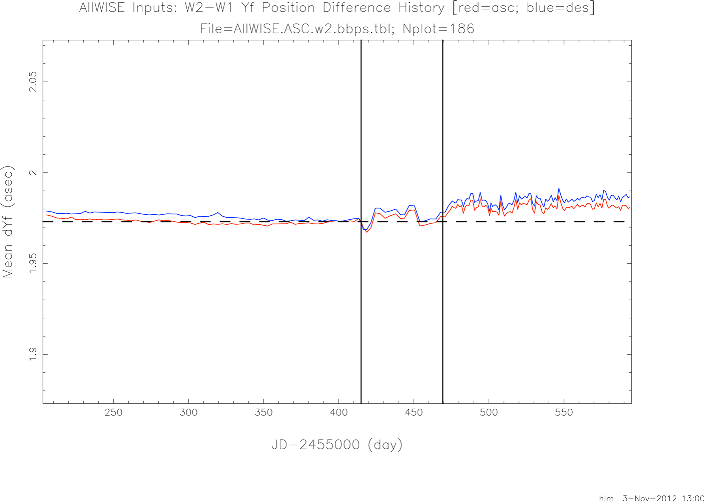 |
| Figure 4 - W2-W1 Yf Difference History |
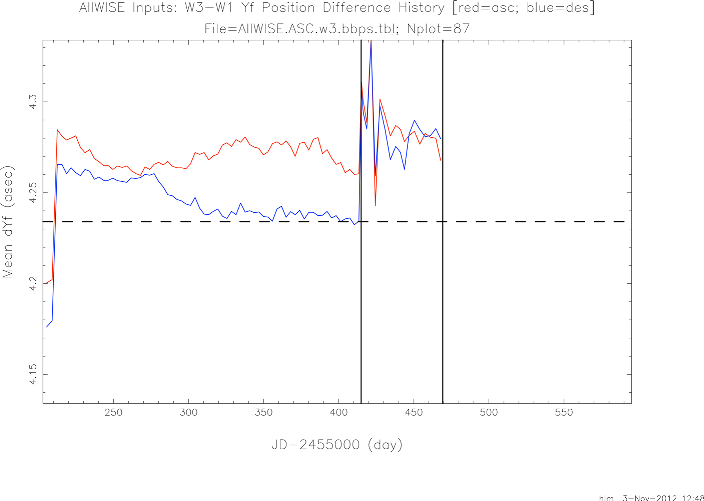 |
| Figure 5 - W3-W1 Yf Difference History |
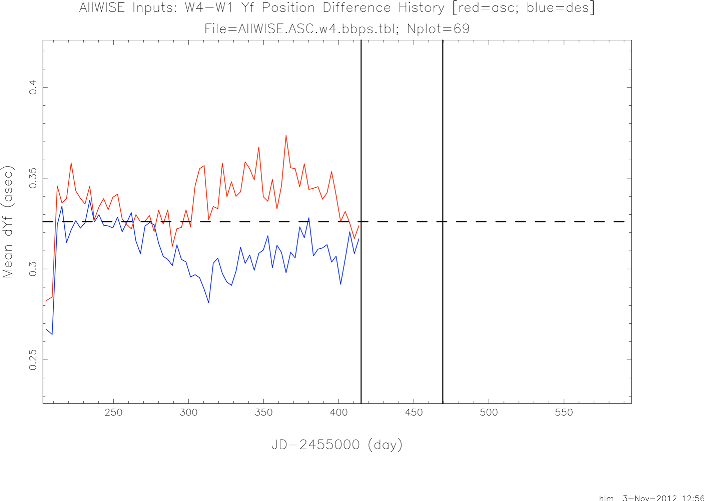 |
| Figure 6 - W4-W1 Yf Difference History |
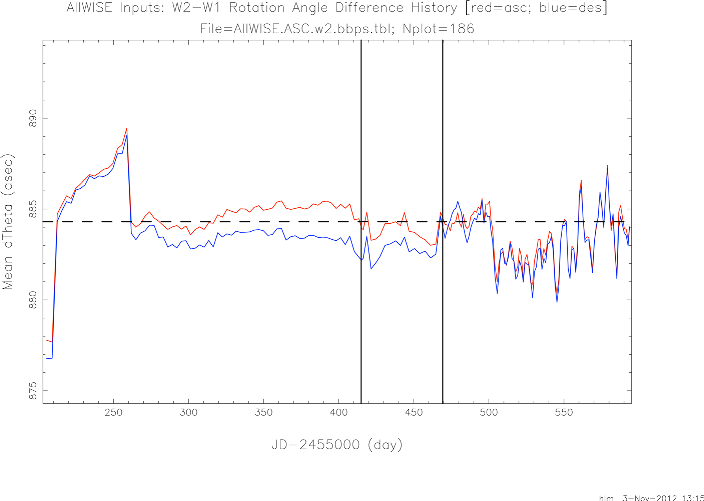 |
| Figure 7 - W2-W1 Rotation Difference History |
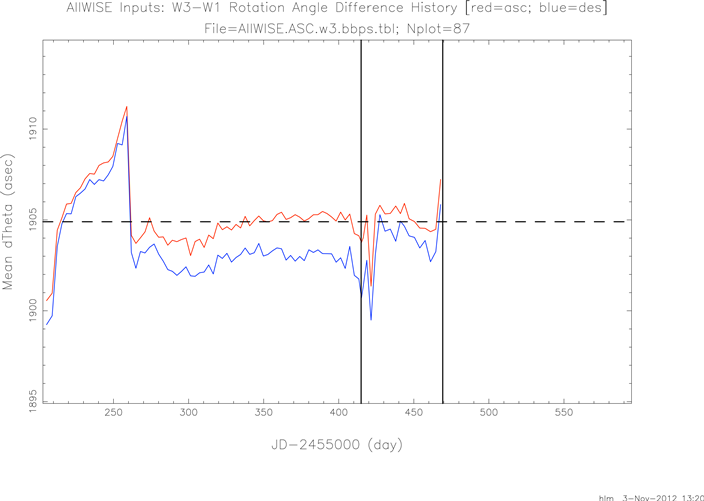 |
| Figure 8 - W3-W1 Rotation Difference History |
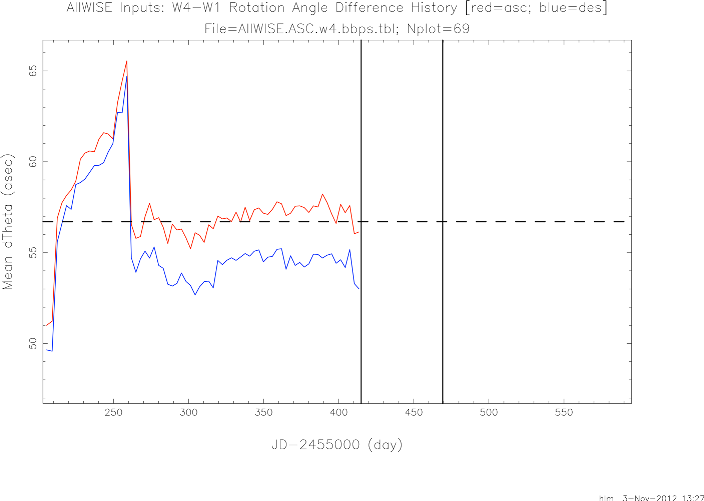 |
| Figure 9 - W4-W1 Rotation Difference History |
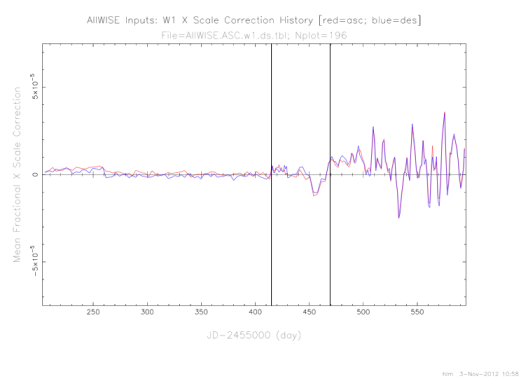 |
| Figure 10 - W1 X Scale Correction History |
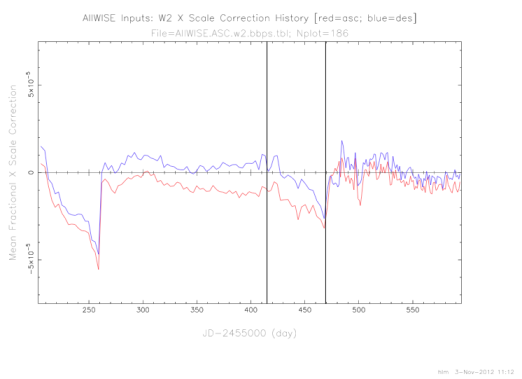 |
| Figure 11 - W2 X Scale Correction History |
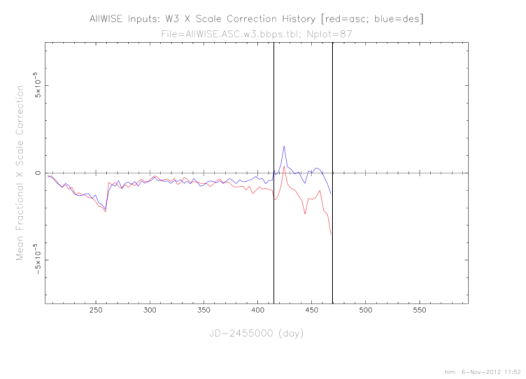 |
| Figure 12 - W3 X Scale Correction History |
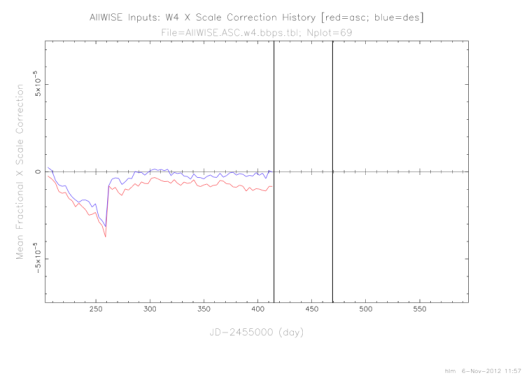 |
| Figure 13 - W4 X Scale Correction History |
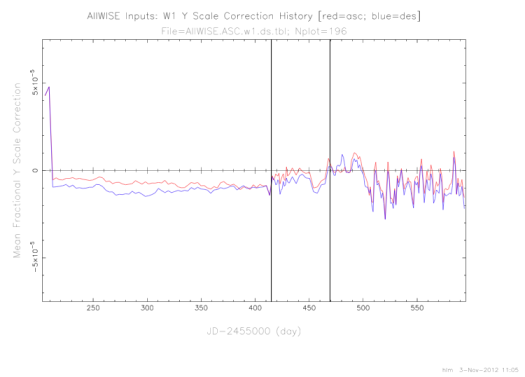 |
| Figure 14 - W1 Y Scale Correction History |
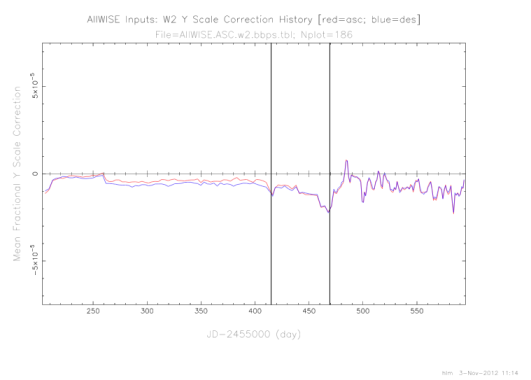 |
| Figure 15 - W2 Y Scale Correction History |
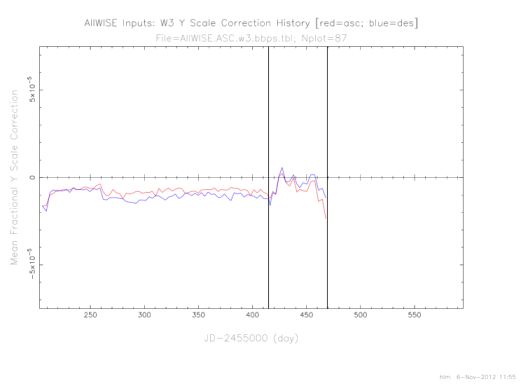 |
| Figure 16 - W3 Y Scale Correction History |
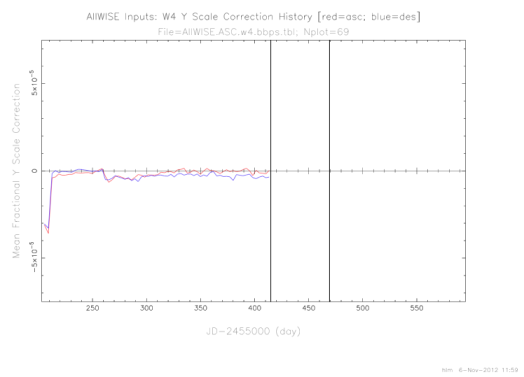 |
| Figure 17 - W4 Y Scale Correction History |
The AllWISE distortion modeling has already been documented for the three mission phases in previous releases. A fixed set of band-dependent distortion models was used for all of the 4-band cryo period as documented in V.4.d.vii.
Whereas time-dependent distortion models were used for the 3-band cryo period and for the post-cryo period.
Last update: 19 November 2013























